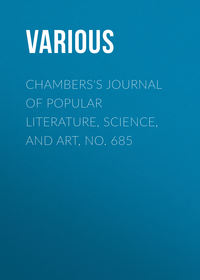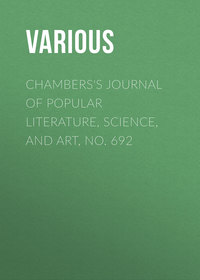
Полная версия
First Italian Readings
Esaurita la digressione sui vari modi pratici di educare, più o meno efficaci, si venne al fatto, il quale, in verità, è così meschinuccio per sè stesso che non merita le circonlocuzioni verbose del professor Gianlucardi, e si racconta in quattro parole. Ecco la cosa come sta.
Si trattava di convertire alla religione del dovere, e in conseguenza del buon senso, una scapatella di marchesina, sposa da poco tempo, che minacciava di abiurare e l'uno e l'altro. La madre si disperava: madre ottima, o meglio ottima donna, che aspettava sempre dall'alto un consiglio, un aiuto, e spesso anche il miracolo: era come quelli che a forza di guardare in su non guardano mai dove mettono i piedi. Rimase vedova presto la contessa Cecilia con quell'unica figlia, che fino dai primi anni prometteva molto per avvenenza, per astuzia, per vanità; e veniva su un maligno serpentello che dava da fare per quattro, e avrebbe dovuto anche dar pensiero per l'avvenire.
–Coi bambini non si ragiona,—diceva la contessa Cecilia;—quando la mia Albertina avrà qualche anno di più, avrà anche un diverso contegno.—E gli anni passavano e il contegno era diverso, ma in peggio; tantochè alcuni amici consigliarono la contessa Cecilia a mettere la figlia in convento: ma lei dichiarò che in convento non l'avrebbe messa mai, perchè non voleva, non poteva separarsi dalla figliuola.
Конец ознакомительного фрагмента.
Текст предоставлен ООО «ЛитРес».
Прочитайте эту книгу целиком, купив полную легальную версию на ЛитРес.
Безопасно оплатить книгу можно банковской картой Visa, MasterCard, Maestro, со счета мобильного телефона, с платежного терминала, в салоне МТС или Связной, через PayPal, WebMoney, Яндекс.Деньги, QIWI Кошелек, бонусными картами или другим удобным Вам способом.
1
si sarebbero mangiata, would have devoured.
2
non sapeva darsi pace, could not console himself.
3
per essergli toccata, for having received.
4
faceva egli a dire, he went on to say.
5
faceva finta… inteso, pretended not to notice them.
6
non siete stato, you have not been.
7
pigliasse, subjunctive used after Sebbene.
8
col fare il morto, by playing dead.
9
Eccoti. Pronouns are joined to the interjection ecco, just as to a verb; ti intimates the interest of the hearer in what is going on.
10
dal Re (French chez le roi), to the king's palace. Da has a variety of meanings in the following selections, such as from, by, for, to or at the house of, suited to, as.
11
entrato che fu, as soon as he had entered.
12
gran, for grande.
13
Di' al tuo, Say to your. The forms of the second person singular are used in addressing inferiors; also in speaking to children, intimate friends, and near relatives.
14
della caccia del suo padrone, of his master's killing.
15
doveva recarsi, was to go.
16
avrebbe potuto, perfect of the conditional used where the simple tense would be expected.
17
con quanta… gola, with all his might.
18
corressero, subjunctive used after verb of commanding.
19
faceva spiccare… persona, set off his good looks.
20
fini fini, repetition for emphasis; occurs frequently in Italian in case of adjectives or adverbs.
21
fosse, subjunctive used in indirect question; in l. 2 of next page, used after a superlative.
22
sarebbe parso, it would have seemed; parere conjugated with essere.
23
per dirne una, for example.
24
dal vedersi… leone, at seeing a lion before his eyes.
25
Di lì a poco, After a little.
26
come sarebbe a dire, in other words.
27
Vostra maestà sia la benvenuta, Welcome to your majesty.
28
di, than.
29
dovevano; compare note 15.
30
da non potersi dire, beyond words.
31
del suo, as her own.
32
Culincenere and Cenerentola are both from cenere, ashes; the former with a depreciative prefix.
33
che tornassero… viso, which might the best become them.
34
ci sarebbe proprio da ridere, it would be a fit subject for laughter.
35
tutt'intera la santa giornata, the whole blessed day.
36
più lontano che potè, as far as she could.
37
che cosa avesse, what was the matter with her.
38
Vorrei, I should like.
39
non sapendo… miglia, not having the faintest idea.
40
che, introduces the question.
41
che non entrava… contentezza, beside herself with joy.
42
per quanto vecchio, old as he was.
43
per farla ballare, that is, as his partner in the dance.
44
nè punto nè poco, at all.
45
In quella che, While.
46
non capiva… gioja; compare note 11.
47
Dev'esser, She must be.
48
Dio mio! Dear me!—altre in the next clause simply adds emphasis.
49
di lì a pochi giorni; compare I., note 25.
50
non, expletive, not to be translated.
51
per farsi vedere, in order to show off, make a show.
52
di discorso in discorso, from one thing to another.
53
un fracasso d'inferno, a deafening clatter.
54
Solferino e San Martino, villages of Lombardy, in northern part of Italy. The battle in question occurred on June 24.
55
Saluzzo, town of Piedmont, in northwestern part of Italy.—andava; note force of tense: was moving.
56
Bella cosa! That's a small matter!
57
Saran, They must be. Future used to express probability.
58
L'hanno proprio con me! They are really after me!
59
dubiti, vuole, third person instead of second in addressing a superior; also the usual form in polite conversation.
60
ad un punto, at the same time.
61
pigliare, with passive sense, to be taken away.
62
stato percorso, that had been passed over.
63
dalla. Notice the recurrence of da on this page and the next, and compare I., note 10.
64
in due non ci si sta, there isn't room for two under it.
65
Nemmen per sogno, Not at all, By no means.
66
d'averla passata liscia, to have got off so easily.
67
colle buone, with fair words.
68
a più non posso, with all their might.
69
ne fa… sue, will be up to its tricks again.
70
dall'alto al basso, down upon.
71
si poteva… prenderlo, you need not to have taken it.
72
e, to be omitted.
73
quale e' si sia, whatever it may be.
74
all'atto pratico, in actual practice.
75
arnese galerabile, gallows bird; lit., harness fit for a galley.
76
vale a dire, that is to say.
77
far fede, bear witness; lit., make faith.
78
falla, make it. Consonant of pronoun is doubled.
79
Dimmi, Tell me of.
80
stato civile. The stato civile, or "social state" of persons is their condition as regards the principal facts of existence: birth, marriage, death, etc., and involves the recording of these events in the public registers.
81
Como, town north of Milan, near the Swiss frontier.
82
un ambrosiano all'antica, a Milanese of the old school.
83
va ronzando… figliuola, is hovering about your daughter; ronzare, to buzz, hum, then to rove, ramble.
84
Brera, well-known picture gallery at Milan, open to the public gratis on certain days.
85
se la svignarono, disappeared, escaped.
86
agenti di questura, police officers.
87
Salomone di Caus, a celebrated French engineer, who died about 1626. There is a story to the effect that he was imprisoned on the charge of insanity.
88
Da qualche tempo, Some time before.
89
Ci si provò anche lei, eh, You also attempted it, did you?











